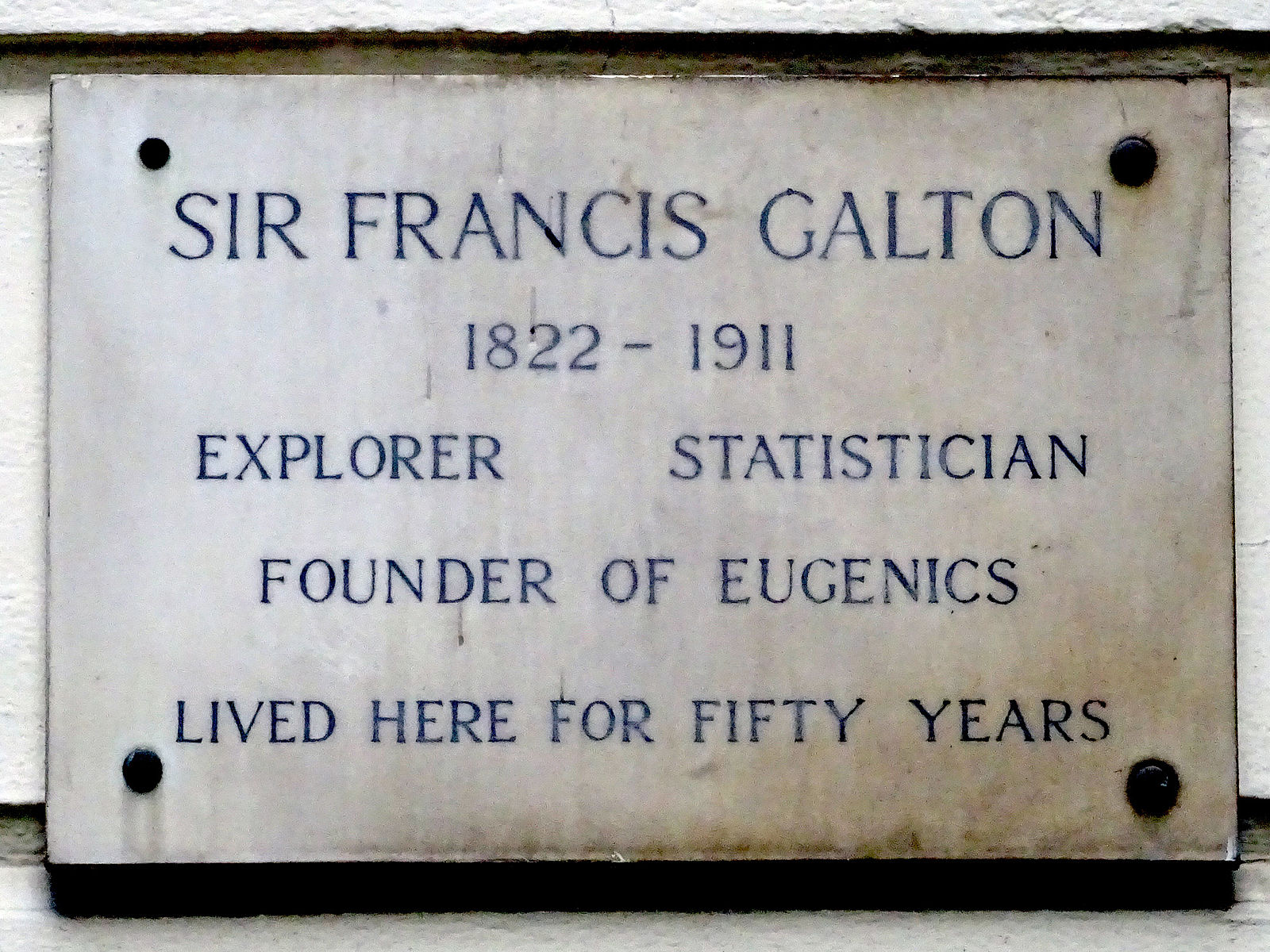The “Correlation” Between Statistics and Eugenics
By Aubrey Clayton,
Los Angeles Review of Books
| 07. 18. 2024
Image "Sir Francis Galton" by Spudgun67 from Wikimedia Commons licensed under CC BY-SA 4.0
IN 2013, A SERIES of ads about the dangers of teen pregnancy appeared on New York City subway trains. Sponsored by the city’s Human Resources Administration, the ads cautioned prospective teen parents that babies were likely—surprise!—to exact a heavy toll on their finances, relationships, and job prospects. The ads were formulated as plaintive messages from the babies themselves. One teary-eyed toddler lamented: “I’m twice as likely not to graduate high school because you had me as a teen.” As then-mayor Michael Bloomberg explained, “This campaign makes very clear to young people that there’s a lot at stake when it comes to deciding to raise a child.” The ad campaign was quite rightly ridiculed, in large part because it offered no support services for teens who were, or might become, pregnant.
From a statistical point of view, though, the most objectionable part of the whole campaign was a single word—“because.”
At the bottom of the poster, a footnote contained this statistic: “Kids of teen moms are...
Related Articles
By Pete Shanks
| 02.27.2026
Last month, we published “The Shameful Legacy of Tuskegee” which focused on a proposed experiment in Guinea-Bissau. The study’s plan echoed the notorious Tuskegee disaster, withholding safe, effective vaccines against hepatitis B from some newborns while inoculating others. It was to be financed by the U.S. but performed by a controversial Danish team. That project provoked a multi-national outcry, leading to a remarkable response from the World Health Organization:
WHO has significant concerns regarding the study’s scientific...
By Kiana Jackson and Shannon Stubblefield, New Disabled South | 02.09.2026
"MC0_8230" via Wikimedia Commons licensed under CC by 2.0
This report documents a deliberate assault on disabled people in the United States. Not an accident. Not a series of bureaucratic missteps. An assault that has been coordinated across agencies...
By Scott Solomon, The MIT Press Reader | 02.12.2026
Chris Mason is a man in a hurry.
“Sometimes walking from the subway to the lab takes too long, so I’ll start running,” he told me over breakfast at a bistro near his home in Brooklyn on a crisp...
By Jonathan D. Moreno, Hastings Center Bioethics Forum | 02.09.2026
When I began to write a book about bioethics and the rules-based international order, the idea that the world was facing the greatest geopolitical change since World War II was uncontroversial for those who were paying attention to such esoterica...




